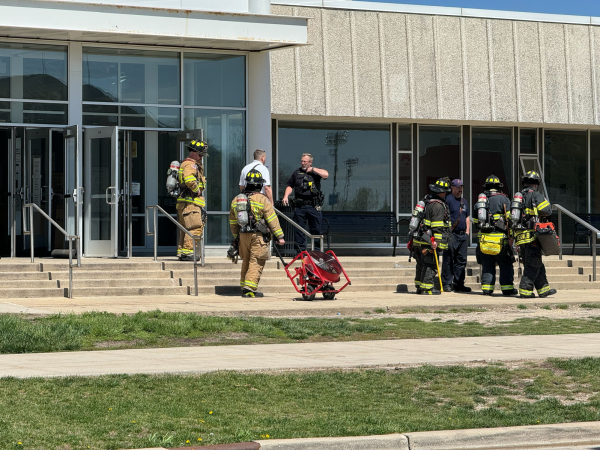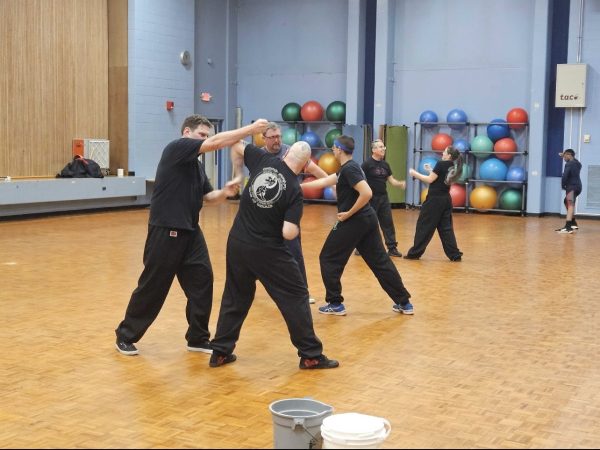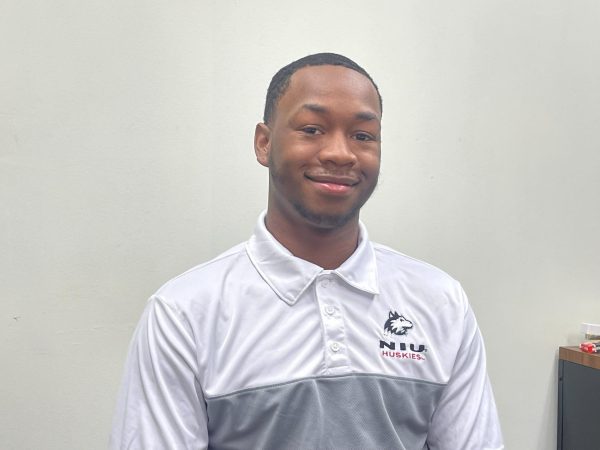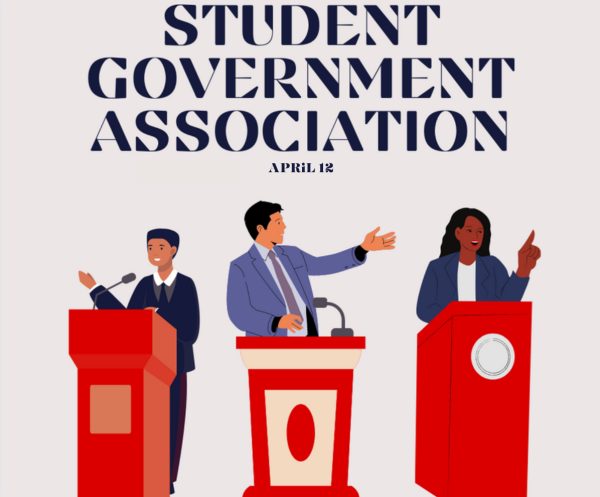The Title IX Debate
February 27, 2003
CHICAGO – A federal advisory panel on the enforcement of Title IX billed its work as a “strong consensus,” but on the day it delivered its final report, consensus was hard to find until U.S. Secretary of Education Rod Paige stepped in.
At a news conference Wednesday in Washington, two dissenting members of the Secretary of Education’s Commission on Opportunity in Athletics released their own minority report and attacked eight of the 23 recommendations included in the commission’s final report as well as the group’s credibility.
At a news conference later, the commission co-chairs defended both their product and their process.
At stake is the future of nondiscrimination in sports under Title IX of the Education Amendments of 1972, which prohibits schools receiving federal funds from discriminating on the basis of sex. Female athletic participation has skyrocketed in the last 31 years, but commission members Julie Foudy and Donna de Varona argued that some commission recommendations granting greater flexibility in the way schools are allowed to comply with Title IX might, if implemented, roll back that progress.
“We plead with the president and the secretary of education and the Congress to understand the implications of the recommendations,” said Foudy, past president of the Women’s Sports Foundation and a member of the U.S. national women’s soccer team. “It could result in substantial losses to women in athletic opportunities.”
All called for maintaining current policies while strengthening enforcement of and education about Title IX.
Paige formed the 15-member commission of sports professionals and educators in June to study the enforcement of Title IX. He will decide which ideas, if any, to implement.
In a surprise move, Paige said later Wednesday in a statement he would consider only the 15 recommendations that drew unanimous support from the commission, and a spokesman later confirmed it.
That would eliminate five of the eight proposals singled out for criticism in the minority report. But it still would allow for changes in proportionality, one of three ways a school can show its athletic program complies with Title IX and the focus of much of the controversy surrounding the law and the commission’s work.
To meet the proportionality test, a school must provide participation opportunities for male and female students in numbers that are “substantially proportionate” to their respective enrollments.
Another unanimous recommendation suggests the Department of Education explore ways of demonstrating equity beyond the three-part test.
“That last one is so wide open, it gives them license to do anything,” Foudy said after learning of Paige’s decision. “It basically brings all the other ones back into play.”
She had voted for the recommendation but opposed it after seeing how it appeared in the final report.
Among the recommendations eliminated by Paige’s move were excluding non-recruited non-scholarship athletes from proportionality calculations and including available roster spots even if they were not used.
“Their willingness to only pursue so-called unanimous recommendations is a step forward, but it is not the end,” Senate Minority Leader Tom Daschle (D-S.D.) said.
Commission co-chairs Ted Leland and Cynthia Cooper denied the report’s recommendations would weaken Title IX enforcement, pointing to proposals reaffirming a commitment to equal opportunity and calling for stronger enforcement and more effective sanctions.
“I don’t see a step backward in any of these proposals,” said Leland, the athletic director at Stanford.
Advocates for change in Title IX contend current enforcement practices amount to an unfair quota system that has resulted in the termination of hundreds of college teams in such men’s sports as wrestling, swimming and gymnastics. They greeted the commission report as a possible first step toward change.
“With the exception of a small number of special interest groups, there is clear and overwhelming support for Title IX reform,” said Mike Moyer, executive director of the National Wrestling Coaches Association. “Clearly the majority of people understand what is in place now is not working.”
The minority report attacked the commission’s report as rushed, based on inadequate information_including the impact of some recommendations.
Northern Illinois University athletic director Cary Groth, a commission member, agreed with the two commission dissidents that the report lacked in-depth information about views on both sides of disputed recommendations.
“There was significant debate,” she said. “I think it would have been helpful to those reading this report if they understood somewhat the discussion that took place.”
Groth also lamented that the commission lacked the time to “put pencil to paper” to assess the impact of some recommendations and said Paige should do so and reject any proposals that would undermine women’s progress under Title IX.
Lenald and Cooper, a former professional basketball player, defended the commission’s process as fair.
“We engaged in open, public debate over Title IX,” Cooper said.













